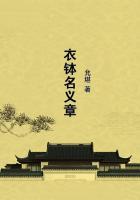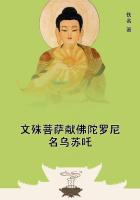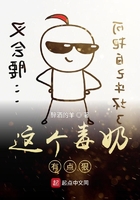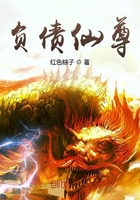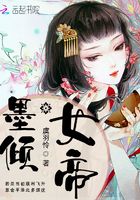MAULE'S WELL
AFTER an early tea, the little country-girl strayed into the garden. The enclosure had formerly been very extensive, but was now contracted within small compass, and hemmed about, partly by high wooden fences, and partly by the outbuildings of houses that stood on another street. In its centre was a grass-plat, surrounding a ruinous little structure, which showed just enough of its original design to indicate that it had once been a summer-house. A hop-vine, springing from last year's root, was beginning to clamber over it, but would be long in covering the roof with its green mantle. Three of the seven gables either fronted or looked sideways, with a dark solemnity of aspect, down into the garden.
The black, rich soil had fed itself with the decay of a long period of time; such as fallen leaves, the petals of flowers, and the stalks and seed--vessels of vagrant and lawless plants, more useful after their death than ever while flaunting in the sun.
The evil of these departed years would naturally have sprung up again, in such rank weeds (symbolic of the transmitted vices of society) as are always prone to root themselves about human dwellings. Phoebe Saw, however, that their growth must have been checked by a degree of careful labor, bestowed daily and systematically on the garden. The white double rose-bush had evidently been propped up anew against the house since the commencement of the season; and a pear-tree and three damson-trees, which, except a row of currant-bushes, constituted the only varieties of fruit, bore marks of the recent amputation of several superfluous or defective limbs. There were also a few species of antique and hereditary flowers, in no very flourishing condition, but scrupulously weeded; as if some person, either out of love or curiosity, had been anxious to bring them to such perfection as they were capable of attaining. The remainder of the garden presented a well-selected assortment of esculent vegetables, in a praiseworthy state of advancement. Summer squashes almost in their golden blossom; cucumbers, now evincing a tendency to spread away from the main stock, and ramble far and wide; two or three rows of string-beans and as many more that were about to festoon themselves on poles; tomatoes, occupying a site so sheltered and sunny that the plants were already gigantic, and promised an early and abundant harvest.
Phoebe wondered whose care and toil it could have been that had planted these vegetables, and kept the soil so clean and orderly.
Not surely her cousin Hepzibah's, who had no taste nor spirits for the lady-like employment of cultivating flowers, and--with her recluse habits, and tendency to shelter herself within the dismal shadow of the house--would hardly have come forth under the speck of open sky to weed and hoe among the fraternity of beans and squashes.
It being her first day of complete estrangement from rural objects, Phoebe found an unexpected charm in this little nook of grass, and foliage, and aristocratic flowers, and plebeian vegetables. The eye of Heaven seemed to look down into it pleasantly, and with a peculiar smile, as if glad to perceive that nature, elsewhere overwhelmed, and driven out of the dusty town, had here been able to retain a breathing-place. The spot acquired a somewhat wilder grace, and yet a very gentle one, from the fact that a pair of robins had built their nest in the pear-tree, and were ****** themselves exceed ingly busy and happy in the dark intricacy of its boughs. Bees, too,--strange to say, --had thought it worth their while to come hither, possibly from the range of hives beside some farm-house miles away. How many aerial voyages might they have made, in quest of honey, or honey-laden, betwixt dawn and sunset! Yet, late as it now was, there still arose a pleasant hum out of one or two of the squash-blossoms, in the depths ofwich these bees were plying their golden labor. There was one other object in the garden which Nature might fairly claim as her inalienable property, in spite of whatever man could do to render it his own. This was a fountain, set round with a rim of old mossy stones, and paved, in its bed, with what appeared to be a sort of mosaic-work of variously colored pebbles. The play and slight agitation of the water, in its upward gush, wrought magically with these variegated pebbles, and made a continually shifting apparition of quaint figures, vanishing too suddenly to be definable. Thence, swelling over the rim of moss-grown stones, the water stole away under the fence, through what we regret to call a gutter, rather than a channel. Nor must we forget to mention a hen-coop of very reverend antiquity that stood in the farther corner of the garden, not a great way from the fountain. It now contained only Chanticleer, his two wives, and a solitary chicken. All of them were pure specimens of a breed which had been transmitted down as an heirloom in the Pyncheon family, and were said, while in their prime, to have attained almost the size of turkeys, and, on the score of delicate flesh, to be fit for a prince's table. In proof of the authenticity of this legendary renown, Hepzibah could have exhibited the shell of a great egg, which an ostrich need hardly have been ashamed of. Be that as it might, the hens were now scarcely larger than pigeons, and had a queer, rusty, withered aspect, and a gouty kind of movement, and a sleepy and melancholy tone throughout all the variations of their clucking and cackling.
It was evident that the race had degenerated, like many a noble race besides, in consequence of too strict a watchfulness to keep it pure. These feathered people had existed too long in their distinct variety; a fact of which the present representatives, judging by their lugubrious deportment, seemed to be aware.

